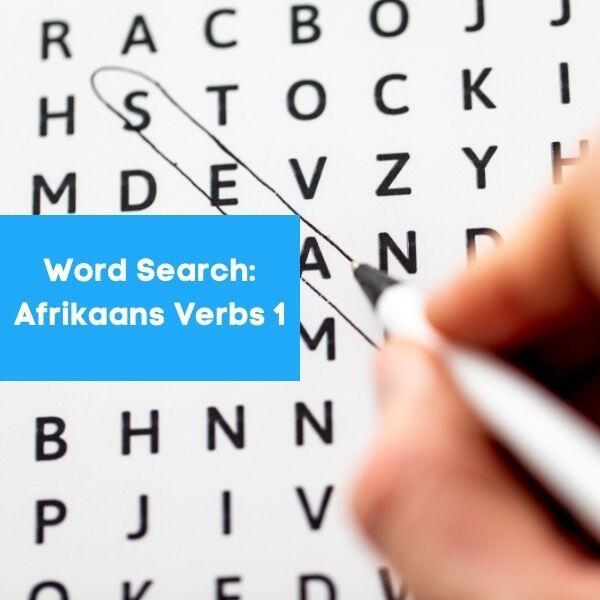Is Afrikaans An Easy Language To Learn?
Afrikaans is a West Germanic language that is spoken in South Africa and Namibia. It is closely related to Dutch, and as such, many English speakers find it quite easy to learn.
What makes Afrikaans easy for English speakers?
There are several factors that make a language easier to learn for some groups than others. For an in-depth look at this, check out our article The 5 Easiest (And Cheapest) Languages To Learn Online.
With regards to Afrikaans, there are also a number of reasons why it’s considered an easy language for English speakers to learn. Some of these are:
Afrikaans uses the Latin script
One of the things that can make a language difficult to learn is if it uses a different alphabet or script. This can be a particular challenge for English speakers, who don’t have much exposure to other alphabets.
Afrikaans, thankfully, uses the same Latin script as English. This means that there is no need to learn a new alphabet, and that the two languages share a lot of common ground when it comes to spelling and pronunciation.
Afrikaans is phonetic
Another feature that can make a language difficult to learn is if it has many irregularities in its pronunciation.
The good news is, Afrikaans is phonetic (unlike English and French), which means that words are generally pronounced exactly as they’re written. Once you learn how to pronounce the letters, you’ll pretty much be able to pronounce every word you come across in the language.
Common Germanic root
Believe it or not, English and Afrikaans (and Dutch and German, of course) actually belong to the same language family – West Germanic.
Thanks to this common ancestor, you’ll find that there are many cognates (words that are similar in meaning and form) between the two languages, which will aid in memorization. The following examples illustrate this:
| English | Afrikaans |
| Father | Vader |
| Mother | Moeder |
| Brother | Broer |
As you can see, these words look and sound very similar, which makes them easy for English speakers to remember.
Similar word order and sentence construction to English
The word order in Afrikaans is similar to that of English, which is yet another reason why the language is considered easy to learn. For example, a typical English sentence would be constructed as follows:
Subject + Verb + Object
I am eating an apple.
In Afrikaans, this would be:
Ek eet ‘n appel.
Obviously, this does get a bit more complex as you start to introduce more elements into a sentence, but the basic word order is the same. As such, building your own sentences in Afrikaans won’t be too much of a challenge.
No grammatical genders
Afrikaans has no grammatical genders, so there is no need to worry about masculine or feminine forms of words. This means that the definite and indefinite articles “the” and “a/an” respectively remain the same for every noun.
If you’ve ever studied any other languages, i.e. German, you’ll be able to appreciate what a huge relief a genderless language is!
A simplified verb system
Afrikaans has a simplified verb system, where verbs don’t change according to the subject (even English can’t boast this – the verb “to be” has 3 different forms in the present tense alone!). There are also only 3 verb tenses in Afrikaans: past, present, and future.
E.g. English: I am, you are, he/she/it is Afrikaans: ek is, jy is, hy/sy/dit is
This all means that there is no need to learn conjugations, making the language much easier to master.
Now that we’ve established some of the reasons why Afrikaans is considered an easy language for English speakers to learn, you might be wondering how it stacks up against Dutch – another West Germanic language.
Is Afrikaans easier than Dutch?
The simple answer is yes, Afrikaans is easier to learn than Dutch.
While the two languages do share a lot in common, there are a few key differences that make Afrikaans more user-friendly, particularly for English speakers. We’ve already covered a number of them above; many of those features that appear in Afrikaans don’t appear in Dutch.
- Dutch has grammatical genders
- Dutch verbs change depending on the subject
- Afrikaans has simplified spelling, whereas Dutch does not
- Due to the British colonization of South Africa after the Dutch one, a significant number of words in Afrikaans are borrowed from English. As a result, English speakers will find that they already know a fair number of Afrikaans words, even before they start learning the language
Conclusion
If you’re a native English speaker who’s new to language learning, Afrikaans is definitely a good choice. Thanks to its similarities with English, you’ll find that Afrikaans is an easy language to pick up. In fact, you might even be surprised at just how quickly you start to see progress!
It’s important that you choose a language that you’ll be able to see quick progress in, if you’re just starting out, as this will help to keep you motivated. Afrikaans ticks all the boxes in this regard, so if you’re looking for an easy language to learn, why not give it a try?



